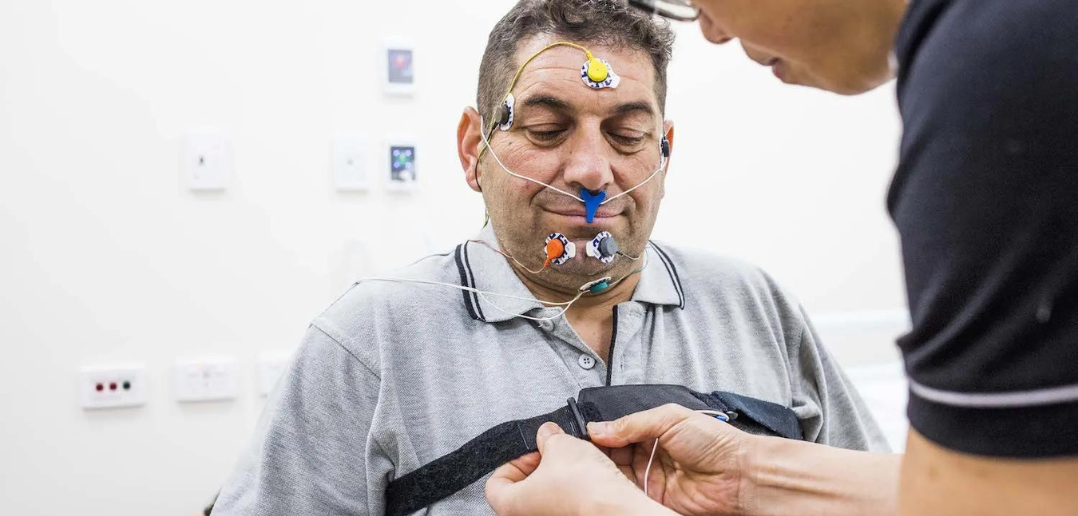What sleep trackers don’t tell you

01/07/24
As people become more aware of the importance of sleep, more Australians are turning to technology to monitor their night-time health – but they may not be getting a full understanding of their situation.
Dr Michelle Caldecott, a sleep and respiratory physician, said she had noticed an increase in patients using smart devices such as watches to help track their nocturnal movements.
“Their smart devices can detect snoring and sleep disturbance, but they do have limitations,” said Dr Caldecott, Director of the Internal Medicine Clinical Institute at Victoria’s Epworth HealthCare.
“Smart devices use actigraphy to track movements, thereby determining if the patient is awake or asleep; however they can’t always accurately determine the stage of sleep someone is in.”
Dr Caldecott said many people fail to take action when such devices indicate disrupted sleep and they experience symptoms such as daytime sleepiness – but it is crucial to get properly tested.
“Some people worry that they might need a Continuous Positive Airway Pressure (CPAP) machine to help with their breathing at night. However, before considering CPAP, it’s essential to identify the underlying causes of their fatigue or disrupted sleep,” she said.
“It is important for people to know there are causes of daytime sleepiness other than obstructive sleep apnoea (OSA). There are many non-respiratory sleep disorders, which can be effectively diagnosed and treated.”
Epworth is a world leader in sleep research and patient care, having developed what is still a universal test for helping to assess sleep disorders nearly four decades ago.
Since then, the effects of disrupted sleep on everyday life have become more widely understood.
“Problems with sleep have been linked to cardiovascular disease, stroke, high blood pressure, mood disorders, and the increased risk of workplace and traffic accidents,” said Darrel Wicks, Group Manager of Epworth Sleep Services.
Epworth’s Sleep Unit has a team of 70 sleep physicians supported by 25 sleep scientists.
Since moving to the private healthcare group’s Camberwell clinic in Melbourne in May 2004, they have performed more than 40,000 sleep studies on-site and in patients’ homes – with an increasing number being required for job safety.
“For about six years it has been a VicRoads requirement that if you have a commercial licence and you have been diagnosed with a sleep disorder, you need to be regularly tested and reviewed,” Mr Wicks said.
“We conduct vigilance testing for truck, train, and tram drivers, as well as commercial pilots, by creating a sleep-inducing environment in a comfortable chair within a soundproof room.
“They are instructed to stay awake for 40 minutes across four sessions throughout the day. Passing this test allows them to continue their commercial roles.”
Sleep apnoea was once mainly considered a problem for older, overweight men, but Dr Caldecott said other factors such as family history, ethnicity, facial structure, and menopausal state should be investigated when investigating breathing disorders.
She said there were big differences in the ways patients presented their sleep problems.
“Men usually seek help after their partner notices issues with their sleep, such as snoring or other warning signs. In contrast, women often attend appointments alone, typically reporting symptoms like tiredness or fatigue,” Dr Caldecott said.
“Additionally, women tend to describe their sleep issues differently and are more likely to report physical symptoms such as headaches or mood disorders.
“Many women experiencing sleep disorders are also going through menopause and, unfortunately, they often accept poor sleep as an inevitable part of this stage of life due to historical perceptions.”
